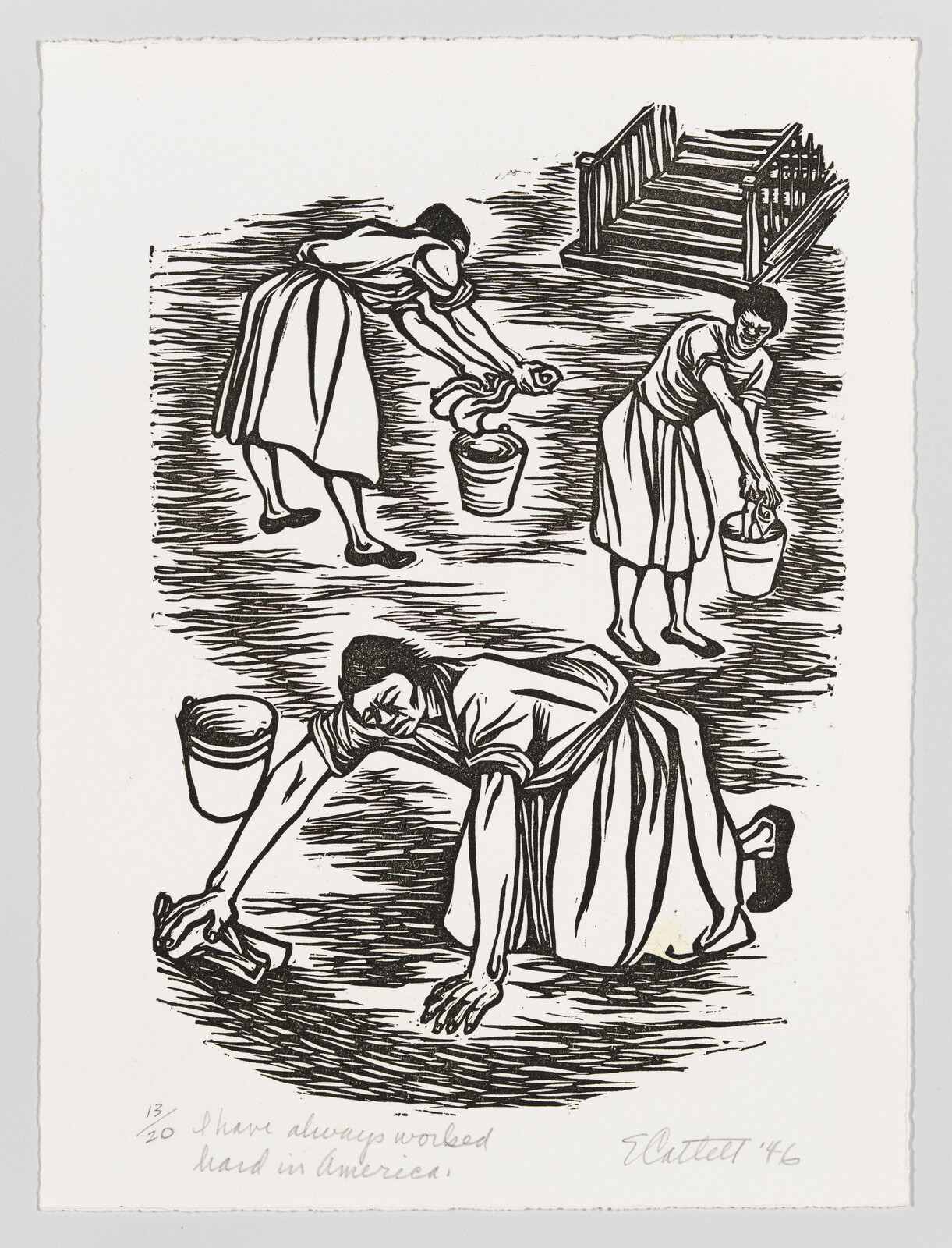Art History from Home:
Art, Work, and Labor
Wed, Sept 7, 2022
12 pm
This event has passed.
See more events like this.
Become a member today!
Join now to enjoy early access to exhibitions and events, unlimited free admission, guest privileges, and more.
Join nowView all Art History From Home events.
This event will have automated closed captions through Zoom. Live captioning is available for public programs and events upon request with seven business days advance notice. We will make every effort to provide accommodation for requests made outside of that window of time. To place a request, please contact us at accessfeedback@whitney.org or (646) 666-5574 (voice). Relay and voice calls welcome.
Learn more about access services and programs.
Online, via Zoom
From the assembly line to the office, American artists have grappled with how to depict, honor, and critique the different ways we work since the Industrial Revolution. Join Teaching Fellow Joseph Henry to explore how artists including Thomas Hart Benton, Elizabeth Catlett, Robert Morris, and Mierle Laderman Ukeles have engaged with the changing nature of work throughout the twentieth century. What lessons can these histories have for our current labor issues, such as burnout and the so-called “Great Resignation”?
This series of online talks by the Whitney’s Joan Tisch Teaching Fellows highlights works in the Museum’s collection to illuminate critical topics in American art from 1900 to the present. During each thirty-minute session, participants are invited to comment and ask questions through a moderated chat.
Joseph Henry is a Joan Tisch Teaching Fellow at the Whitney and a Ph.D. candidate in the art history program at the Graduate Center of the City University of New York, where his research focuses on Expressionism and the relationship between art and labor in addition to design, dance and performance, and queer visual culture. He has held several prestigious fellowships and has written on contemporary art for publications such as Artforum, Frieze, and Art in America, as well as in several exhibition catalogues.

